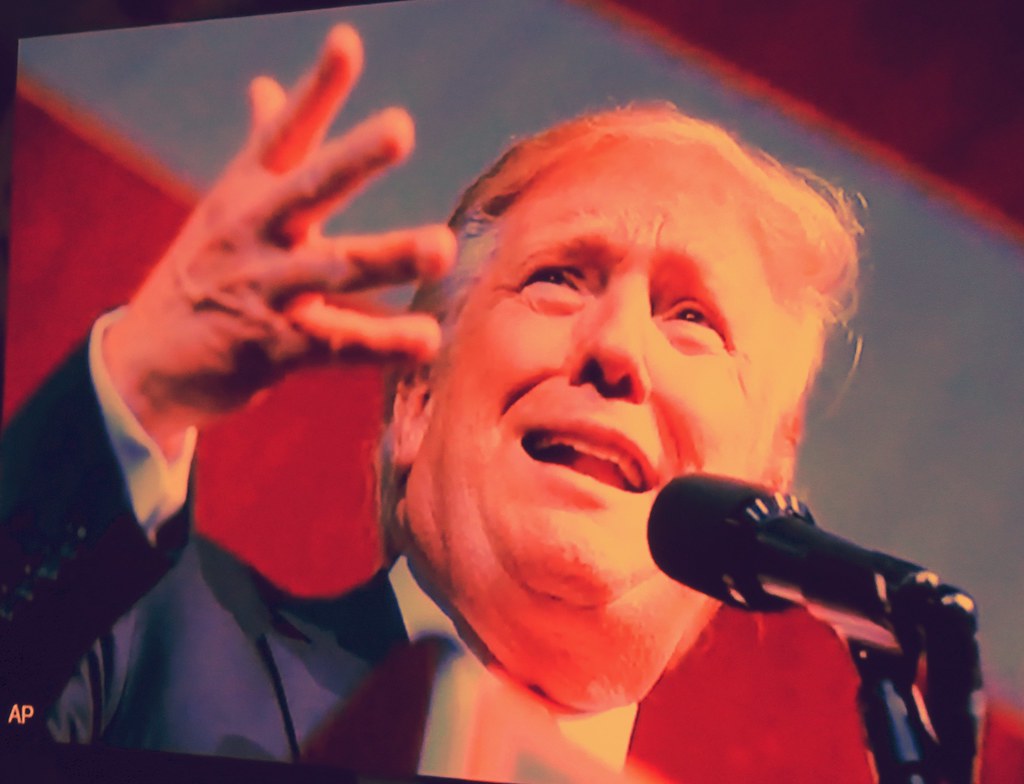Key Takeaways:
- Senator Slotkin warns Trump is following an authoritarian playbook.
- She sees threats like martial law and labeling opponents terrorists.
- Secret military strikes abroad may signal danger at home.
- Slotkin proposes a law to block troops from U.S. streets.
Authoritarian Playbook in Focus
At the Brookings Institution’s Knight Forum on Geopolitics, Senator Elissa Slotkin issued a stark warning. She said President Trump is following the same steps history’s dictators used. By calling it an authoritarian playbook, she painted a clear picture of threat to U.S. democracy. Slotkin drew on her experience as a CIA officer and Pentagon official. Therefore, her words carried extra weight. She urged Americans to pay attention and act now, before the next tipping point arrives.
How the Authoritarian Playbook Works
First, a leader wins trust by speaking to real problems. In Trump’s case, he tapped into concerns over high prices and safety. Next, he places loyalists in key posts and sidelines critics. He then builds influence over courts, agencies, and security forces. After that, he erodes checks and balances bit by bit. Each step alone feels small, but together they follow an authoritarian playbook. Finally, once power seems secure, a leader uses fear or force to crush opposition. Slotkin stressed that we now see many of these steps in motion.
Two Paths to Staying in Power
According to Slotkin, there are two main routes a leader might take to cling to power. One path is martial law. Under the Insurrection Act, the president could deploy troops at polling places or even cancel elections. Such a move would freeze out voters and undermine voting rights. The other path is branding opposition groups as terrorists or criminals. By declaring protests or parties illegal, a leader can outlaw any serious challenge. Both routes fit the authoritarian playbook. Either choice would strike at the heart of fair elections.
Secret Strikes and Domestic Danger
Much of Slotkin’s speech focused on recent U.S. strikes on 14 ships in the Caribbean. Reports say these operations killed 57 people linked to drug cartels. Trump’s team claimed they were stopping illegal drug shipments. Slotkin made it clear she supports fighting cartels. However, she slammed the White House for refusing to name the targeted groups. When pressed by the Senate Armed Services Committee, neither the president nor his defense secretary would share those details. That lack of transparency, Slotkin said, sets a dangerous precedent. If the administration hides its actions abroad, it may hide operations against Americans next.
She went on to link this secrecy to a new policy that lets the president and attorney general label domestic groups as terrorists. No public list or clear rules would apply. Slotkin warned that Americans could find themselves on secret terror lists without due process. If leaders won’t disclose foreign targets, they surely won’t reveal names of domestic groups they aim to punish. She said that idea “should chill every American to the bone.”
Protecting Democracy: New Legislation
Despite her alarm, Slotkin believes in the power of American voters. She noted that even some Trump backers in Michigan express worry over these tactics. To guard against martial law and secret crackdowns, she plans to introduce the No Troops In Our Streets Act. This bill would let Congress instantly end any military deployment on U.S. soil. It would block the use of the Insurrection Act for election interference. In addition, the law would require clear reporting whenever domestic forces step in during protests or unrest. Slotkin hopes this measure can stop any future attempt to impose martial law or use force against peaceful citizens.
In her speech, she urged lawmakers from both parties to join her. She said that defending democracy should not be a partisan issue. In her view, the real safeguard against any authoritarian playbook is sunlight and accountability. When leaders know they must answer to citizens, they are less likely to overstep.
Why It Matters Now
Slotkin popped a flare to warn the nation of looming danger. She stressed that authoritarian moves often start quietly. They build up until the leader feels he must act to save himself. At that tipping point, sudden changes can sweep away freedoms almost overnight. However, by watching for early signs—like loyalist firings, secret orders, or threats to elections—Americans can push back in time. Transition words like meanwhile and therefore can guide readers to see how each step links to the next. Slotkin pointed out that U.S. history shows wide public support for democracy. As long as citizens stay alert and speak out, they form a strong barrier to power grabs.
Slotkin’s call to action is simple. She wants voters to learn how the authoritarian playbook works. Then, she wants them to demand transparency and resist any effort to silence opponents. Finally, she wants Congress to pass legal guards like her new bill. In short, she believes the will of the people can trump any power grab.
FAQs
What is the Insurrection Act?
It is a federal law that lets the president deploy troops to states to enforce laws or suppress rebellions. Critics worry it could be misused to control or stop voting.
How would the No Troops In Our Streets Act protect citizens?
The bill would let Congress immediately end any domestic military deployment. It would stop the use of federal troops to influence elections or target protests.
Why is transparency over military actions important?
Clear information on targets and rules helps prevent misuse of force. When operations remain secret, they can be turned inward against the public without warning.
What can Americans do to guard democracy?
Stay informed about government moves. Speak up at town halls. Vote in every election. And support laws that require transparency and limit the use of force.
